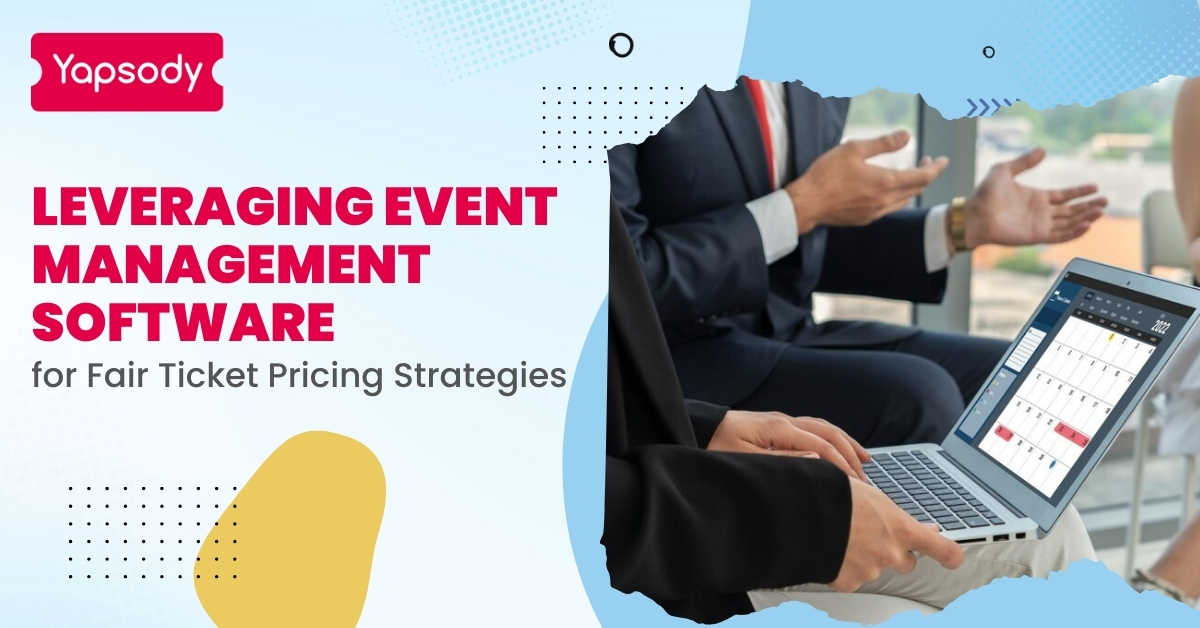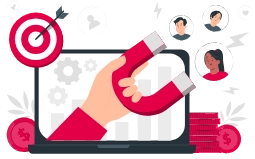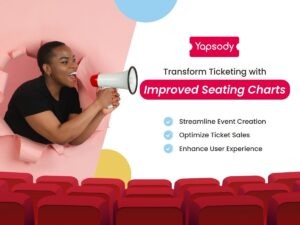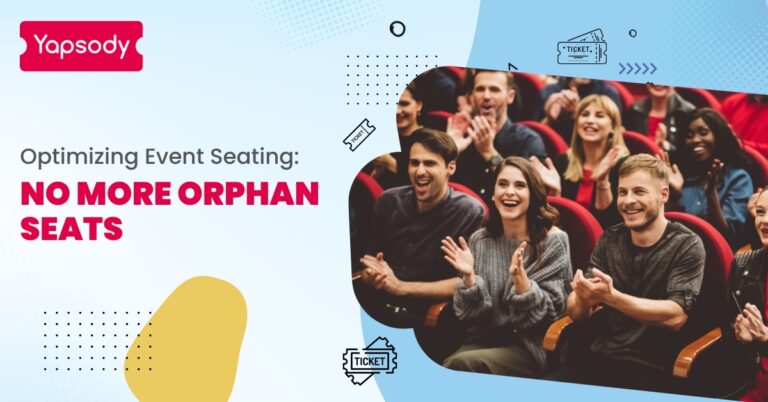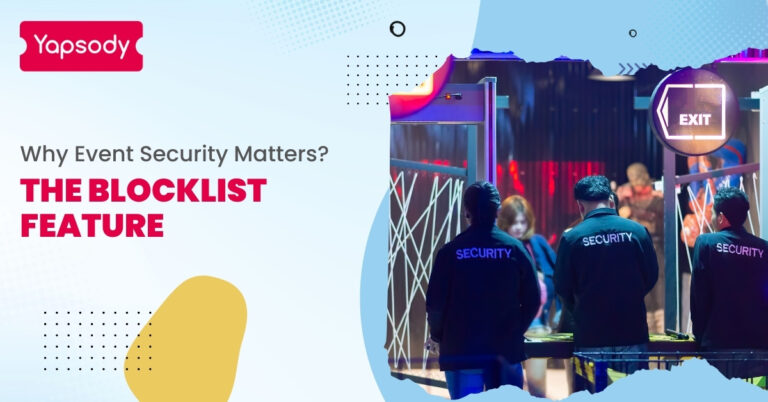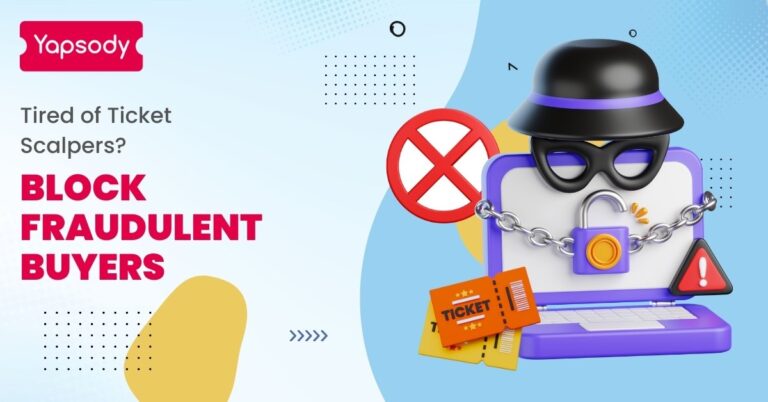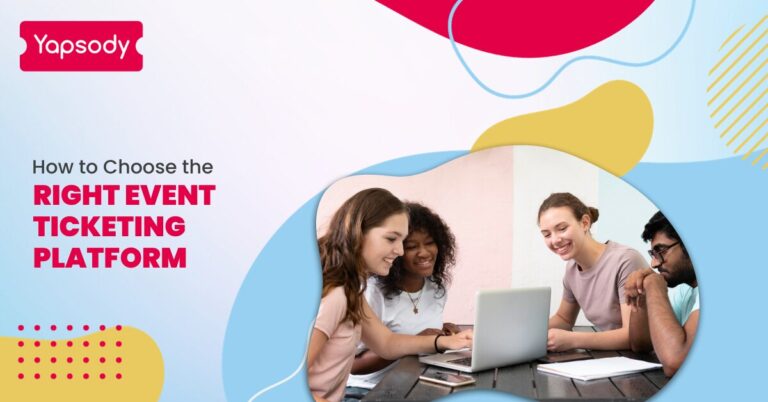Ticket pricing is one of the main aspects of event management that can affect the overall success of your event. If you price your tickets too low, you might not make any profit or break even. On the other hand, if you price them too high, you might not get any attendees.
Fortunately, the top event management software can give you visibility over other metrics that can affect pricing. Today, event management software offers organizers insights into market demand, audience preferences, and current trends in pricing. You can use this information to optimize your approach to pricing and ultimately offer fair ticket prices to eventgoers.
In this blog post, we will provide key strategies for using event management software to determine fair ticket prices and ways to implement these strategies.
Key Strategies for Fair Ticket Pricing with Event Management Software
There are many ways to analyze the market to create the correct pricing for your event. Here are some key strategies you can use to develop fair ticket pricing with your event management software:
Dynamic Pricing Based on Demand
Some event management software allows you to adjust your ticket prices based on how in-demand your event is at the moment. This constant change is called “dynamic pricing,” and you can use the strategy of supply and demand to determine the going rate for your tickets.
Usually, the top event management software uses factors such as the number of tickets left and how fast they are selling to decide the price of the tickets.
For popular events or peak times, dynamic pricing offers several benefits:
- Maximized Revenue: Higher prices for in-demand events can increase your profits while keeping ticket prices optimal.
- Optimized Attendance: You can automate and schedule ticket counts. Then, using this data to set up strategic price drops on tickets can fill the remaining seats, which can bring you closer to having a full house and a better event ambiance.
- Data-Driven Strategy: You can avoid over or underpricing your tickets because you will have visibility over real-time data from your eventgoers and prospective attendees.
Audience Segmentation for Tiered Pricing
To understand what a fair ticket price could look like, you will need to know more about your audience. A great use of event management software is gathering, processing, and visualizing data such as the age and location of potentially interested attendees.
For example, a person living near your event will be more likely to attend rather than those living 12 hours away. At the same time, among people living near your venue, only those at the age with sufficient purchasing power can afford to go to the event. That is, someone aged seven will unlikely be able to attend. Meanwhile, a working professional in their early 30s is more likely to have savings and extra funds to splurge on a concert.
One pricing strategy to cater to the broad spectrum of eventgoers and their purchasing capacities is by offering tiered pricing. It is a way to provide flexible options to those with a budget in mind, as well as attendees who want to spend more on your event.
Examples of tiered pricing strategies include:
- Early Bird Tickets: Discounted rates for those who purchase tickets well in advance, rewarding early commitment and boosting pre-event ticket sales.
- VIP Packages: Premium pricing for attendees seeking exclusive benefits such as priority seating, meet-and-greets, or special access.
- Student Discounts: Reduced rates for students, making events more accessible to younger audiences while fostering community engagement.
Competitive Analysis for Market-Based Pricing
A powerful aspect of event management software is its ability to show you competitor events and current market trends. You can look into past and present data on event types, ticket prices in the area, attendance rates, and more. This info is especially helpful when you benchmark and propose a dollar value for your event to potential investors. Moreover, you can use this data to position yourself more appropriately within your market and stay on brand.
Some of the benefits you will experience from benchmarking include:
- Competitive Edge: Setting prices to industry standards keeps your event competitive.
- Fairness: Avoids overpricing by staying in tune with what similar events charge.
- Informed Decisions: Knowing your competitors’ strategies helps you set better prices and promotions.
Cost-Based Pricing Using Expense Tracking
Another approach to determining a fair ticket price is by considering all the costs involved in the event. You must consider marketing costs, staffing, venue rental rates, tech leases, and any royalties.
It can get pretty overwhelming to track all of these costs, and without a proper system in place, it is challenging, to say the least. Most event management software can help you track costs. It should also help you set prices to cover expenses and make a profit. You can use cost-based pricing to offer fair prices. This transparency can justify your decisions later.
Feedback-Driven Pricing Adjustments
One way to optimize your ticket pricing analysis is through collecting feedback from your attendees. Use event management software to survey attendees about ticket prices and value. Typically, this information can be gathered through surveys and reviews. After processing the data, use the insights to set the ideal cost and ticket pricing for the next event.
Implementing Fair Pricing Strategies with Top Event Management Software: Best Practices
Event management software gives insights. You can use them to set fair and effective prices. Here are a few best practices to maximize your event software’s impact on fair ticket pricing:
- Set Clear Objectives: Define your pricing goals. They could aim to maximize attendance, make a profit, or keep it affordable for some audiences.
- Use Data Insights: Analyze the software’s data. Check demand, competitor prices, and audience demographics. Use this to improve your pricing strategies.
- Monitor Real-Time Performance: Track ticket sales and adjust prices based on performance metrics. This lets you respond to market changes.
- Integrate Multiple Pricing Models: Combine tiered, cost-based, and dynamic pricing. This will meet diverse audience needs while keeping you profitable.
- Test and Refine: Use A/B testing to find the best pricing.
- Encourage Feedback: After the event, gather attendees’ views on its value. Use this feedback to refine future pricing.
Use Event Management Software For Fair Ticket Pricing
In conclusion, to achieve fair ticket pricing that can be agreed upon by both attendees and event organizers, you should use event management software. It’s a surefire way to develop data-driven price points that can help support your decisions throughout the event. After all, the right price will make it more likely that your attendees will be happy with the event and contribute to its overall success.
